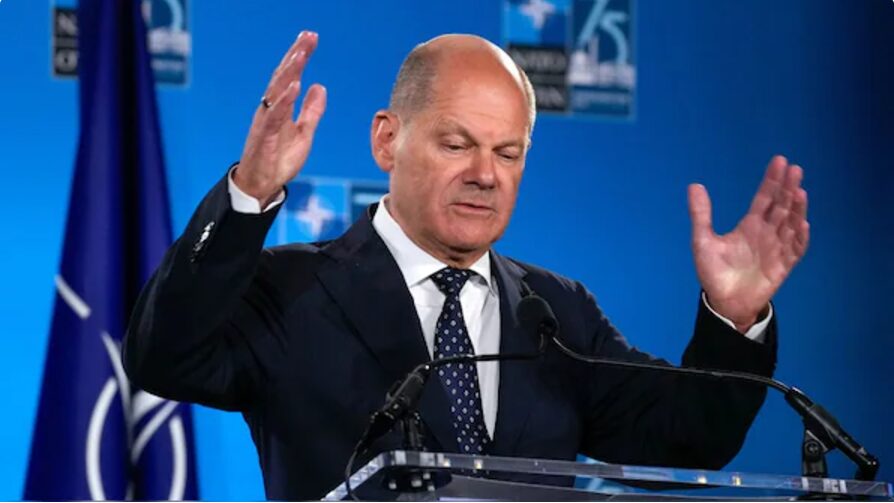On Nov 5, when pro-peace Donald Trump emerged victorious in the US, Ukraine had hoped that EU economies will now step up their financing of the war. Of all, Zelensky had the highest hopes from Germany, the EU’s largest economy.
But those high hopes stand quashed now. Reason? The German people.
Public opinion in Germany is deeply divided over the country’s involvement in Ukraine. While some believe that Germany should continue to support Kyiv, others argue that domestic issues should take priority. The opposition leader, Friedrich Merz, has promised more aggressive support for Ukraine, including sending Taurus missiles, if elected.
In contrast, Scholz is now taking cautious approach, avoiding everything possible that could escalate tensions with Russia. Scholz know, he has to adopt a pro-peace policy to save his chair. And that’s why, he has refused to join Biden in doubling down on support to Ukraine.
Since the start of the conflict, Germany has been a major supplier of military aid to Ukraine. It has provided a wide range of advanced weaponry, including Leopard battle tanks, Marder infantry fighting vehicles, Gepard anti-aircraft tanks, and the sophisticated IRIS-T air defense systems.
At a time when US recently approved long-range support to Ukraine, Ukraine hoped that Germany would also provide it with its long-range Taurus missiles. However, Germany ended up giving it 4,000 AI-guided “mini-Taurus” drones. It stopped short of sending long-range Taurus missiles. Germany in a way rejected Biden’s policy of escalating tensions with Putin.
Scholz is also working on cutting down German aid to Ukraine. See these figures.
So far, Germany’s total military aid to Ukraine amounts to $11.4 billion. However, this figure is expected to drop significantly to $4.18 billion by 2025. According to the Kiel Institute, this reduction could have serious consequences, especially if the United States also scales back its contributions under Trump’s leadership.
Germany’s ability to sustain its support for Ukraine is being tested by serious domestic issues. The country is facing a dual crisis of economic challenges and political instability. Recently, Chancellor Olaf Scholz dismissed Finance Minister Christian Lindner, triggering a chain reaction that led to the collapse of the ruling coalition. As a result, early general elections are scheduled for February 2025.
It’s clear: For Scholz, getting reelected is much more important than giving support to Ukraine. He won’t oil the war machinery in Ukraine at the expense of already-faltering German economy.
Germany’s economy is facing significant challenges. The European Commission predicts a contraction in GDP for 2024, and growth in 2025 is expected to be a sluggish 0.7%. High energy costs, rising inflation, and global market pressures are taking a toll on Germany’s once-mighty industrial sector.
A recent study by the Federation of German Industries warns that one-fifth of the country’s industrial output could be at risk by 2030. This means Germany needs massive investments—estimated at €1.4 trillion—by the end of the decade to revive its infrastructure, education system, and green technologies.
The situation became even more concerning when Volkswagen, Germany’s largest automaker, announced the closure of three factories, resulting in 20,000 job losses. This decision was driven by competition from China, high energy costs, and the economic fallout from the Ukraine war.
In simple words, there is this massive deindustrialization going on in Germany—a fear that has loomed for years.
Ukraine was has played a great role in this. Now, Scholz look determined to write off this Ukrainian liability once and for all.
